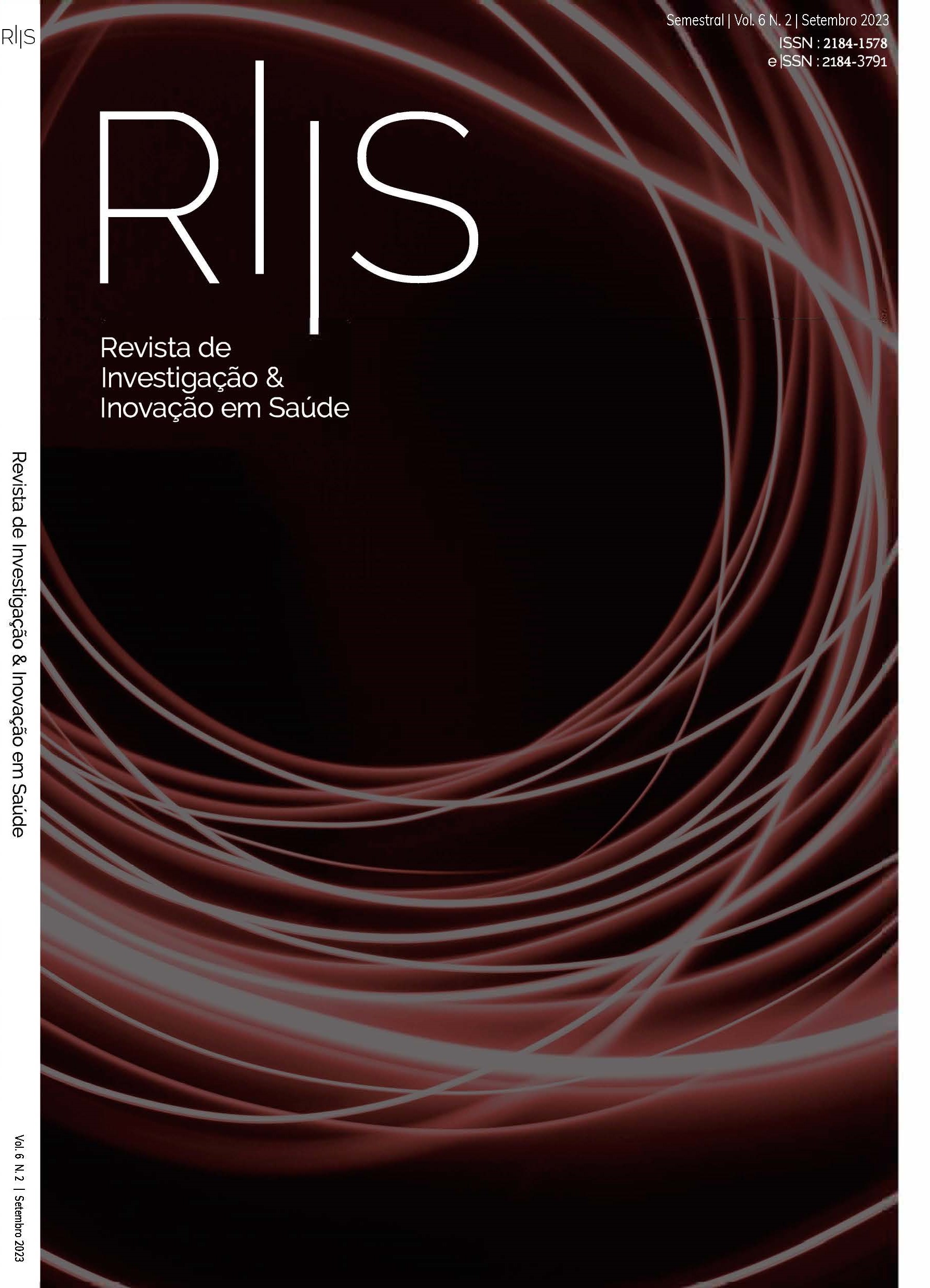Contributions of nurses interventions in communication in Palliative Care: scoping review
DOI:
https://doi.org/10.37914/riis.v7i1.303Keywords:
paliative care, nursing care, communicationAbstract
Background: communication in palliative care is a continuous challenge for professionals. Nurses are responsible for the development of these interventions, and it will be from these that the best results for patients and families will result. Objective: to map the interventions on communication of nurses in the context of palliative care. Methodology: exploratory review study following the methodology of the Joana Briggs Institute. Faced with the question "What communication interventions are developed by nurses in palliative care teams?", a search was carried out in the databases, with descriptors MESH, "palliative care", "nursing Care", "communication" with eligibility criteria. Results: with 88 studies, we selected 11, presenting selection criteria adopted. They report the existence of few studies in the area of communication in palliative care; physicians are less represented; clinical condition at the time of the interview, is impacting and focus on a single moment. It is important to communicate even with computer tools associated with the ability to choose and enhancing its unquestionable benefit. Communication is very relevant link between the nurse and the patient. Conclusion: humanization of death and the understanding of nurses in the communication of information sustain "a meaning for life". It is possible to map the interventions identified by nurses and identify limitations/gaps of knowledge in communication in palliative care.
References
Almeida, K. L. D. S., & Garcia, D. M. (2015). O uso de estratégias de comunicação em cuidados paliativos no brasil: revisão integrativa. Cogitare Enfermagem, 20(4). DOI: http://dx.doi.org/10.5380/ce.v20i4.39509 DOI: https://doi.org/10.5380/ce.v20i4.39509
Andrade, C.G.D., Costa, S.F.G.D., & Lopes, M. E. L. (2013). Palliative care: communication as a strategy of care for the terminal patient. Ciência & Saúde Coletiva, 18(9), 2523-2530. https://doi.org/10.1590/S1413-81232013000900006 DOI: https://doi.org/10.1590/S1413-81232013000900006
Andrade, G.B., Pedroso, V.S.M, & Weykamp J.M., (2019). Cuidados Paliativos e a Importância da Comunicação entre o Enfermeiro e Paciente, Familiar e Cuidador. Rev Fund Care Online. 11(3), 713-717. DOI: http://dx.doi.org/10.9789/2175-5361.2019.v11i3.713-717 DOI: https://doi.org/10.9789/2175-5361.2019.v11i3.713-717
Apolónia, A., Moreira, B., Silva, D., Castro, F., Oliveira, J., & Mota, L. (2018). Perspetivas das Pessoas que Recebem Más Notícias em Contexto Hospital: Revisão Integrativa. Revista De Investigação & Inovação Em Saúde, 1(1), 109–118. https://doi.org/10.37914/riis.v1i1.36 DOI: https://doi.org/10.37914/riis.v1i1.36
Aromataris, E., & Munn, Z. (2020). JBI Manual for Evidence Synthesis. https://synthesismanual.jbi.global. https://doi.org/10.46658/JBIMES-20-01 DOI: https://doi.org/10.46658/JBIMES-20-01
Bowman, P.N., Slusser, K., & Allen, D. Hutch (2018). Collaborative Practice Model: Improving the delivery of bad news. Clinical Journal of Oncology Nursing, 22(1), 23–27. https://doi.org/10.1188/18.CJON.23-27 DOI: https://doi.org/10.1188/18.CJON.23-27
Galvão, M.I.Z., Borges, M.S., & Pinho, D.L.M. (2017). Comunicação interpessoal com pacientes oncológicos em cuidados paliativos. Rev Baiana Enferm. 31(3), e22290. https://doi.org/10.18471/rbe.v31i3.22290
Jonas, L.T., Silva, N.M., Paula, J.M.D., Marques, S., & Kusumota, L. (2015). Comunicação do diagnóstico de câncer à pessoa idosa. Rev. Rene, 16(2), 273-283. https://doi.org/10.15253/2175-6783.2015000200018 DOI: https://doi.org/10.15253/2175-6783.2015000200018
Keeley M. P. (2017). Family Communication at the End of Life. Behavioral sciences (Basel, Switzerland), 7(3), 45. https://doi.org/10.3390/bs7030045 DOI: https://doi.org/10.3390/bs7030045
Melis, P., Galletta, M., Gonzalez, C.I.A., Contu, P., & Herrera, M.F.J. (2020). Ethical perspectives in communication in cancer care: An interpretative phenomenological study. Nursing ethics, 27(6), 1418-1435. https://doi.org/10.1177/0969733020916771 DOI: https://doi.org/10.1177/0969733020916771
Peters, M.D.J, Godfrey, C., McInerney, P., Munn, Z., Tricco, A.C., & Khalil, H. (2020). Chapter 11: Scoping Reviews. In: Aromataris, E., Munn, Z. (EdiT.). JBI Manual for Evidence Synthesis, JBI, 2020. https://doi.org/10.46658/JBIMES-20-12 DOI: https://doi.org/10.46658/JBIRM-20-01
Prado, T.R., Leite, J.L., Silva, Í.R., & Johanson S.L. (2019). Communication in the Management of the Nursing Care Before the Death and Dying Process. Texto & Contexto Enfermagem, 28, 1–14. https://doi.org/10.1590/1980-265X-TCE-2017-0336 DOI: https://doi.org/10.1590/1980-265x-tce-2017-0336
Rylander, A., Fredriksson, S., Stenwall, E., & Gustafsson, L. K. (2019). Significant aspects of nursing within the process of end-of-life communication in an oncological context. Nordic Journal of Nursing Research, 39(2), 85-91. https://doi.org/10.1177/2057158518802564 DOI: https://doi.org/10.1177/2057158518802564
Santos, P.R., Pereira, B. C., Fava, S. M. C. L., Resck, Z. M. R., & Dázio, E. M. R. (2018). Fatores contextuais da comunicação do diagnóstico de câncer no processo de finitude e morte. Enfermagem Brasil, 17(2), 134-144. https://doi.org/10.33233/eb.v17i2.1166 DOI: https://doi.org/10.33233/eb.v17i2.1166
Tricco, A. C., Lillie, E., Zarin, W., O'Brien, K. K., Colquhoun, H., Levac, D., Moher, D., Peters, M. D. J., Horsley, T., Weeks, L., Hempel, S., Akl, E. A., Chang, C., McGowan, J., Stewart, L., Hartling, L., Aldcroft, A., Wilson, M. G., Garritty, C., Lewin, S., … Straus, S. E. (2018). PRISMA Extension for Scoping Reviews (PRISMA-ScR): Checklist and Explanation. Annals of internal medicine, 169(7), 467–473. https://doi.org/10.7326/M18-0850 DOI: https://doi.org/10.7326/M18-0850
Widberg, C., Wiklund, B., & Klarare, A. (2020). Patients’ experiences of eHealth in palliative care: an integrative review. BMC Palliative Care, 19(1), 1-14. https://doi.org/10.1186/s12904-020-00667-1 DOI: https://doi.org/10.1186/s12904-020-00667-1
Downloads
Published
How to Cite
Issue
Section
License
Copyright (c) 2024 Sérgio Soares, Carla Pinho, Elisabete Bastos, Luísa Ferreira

This work is licensed under a Creative Commons Attribution 4.0 International License.















